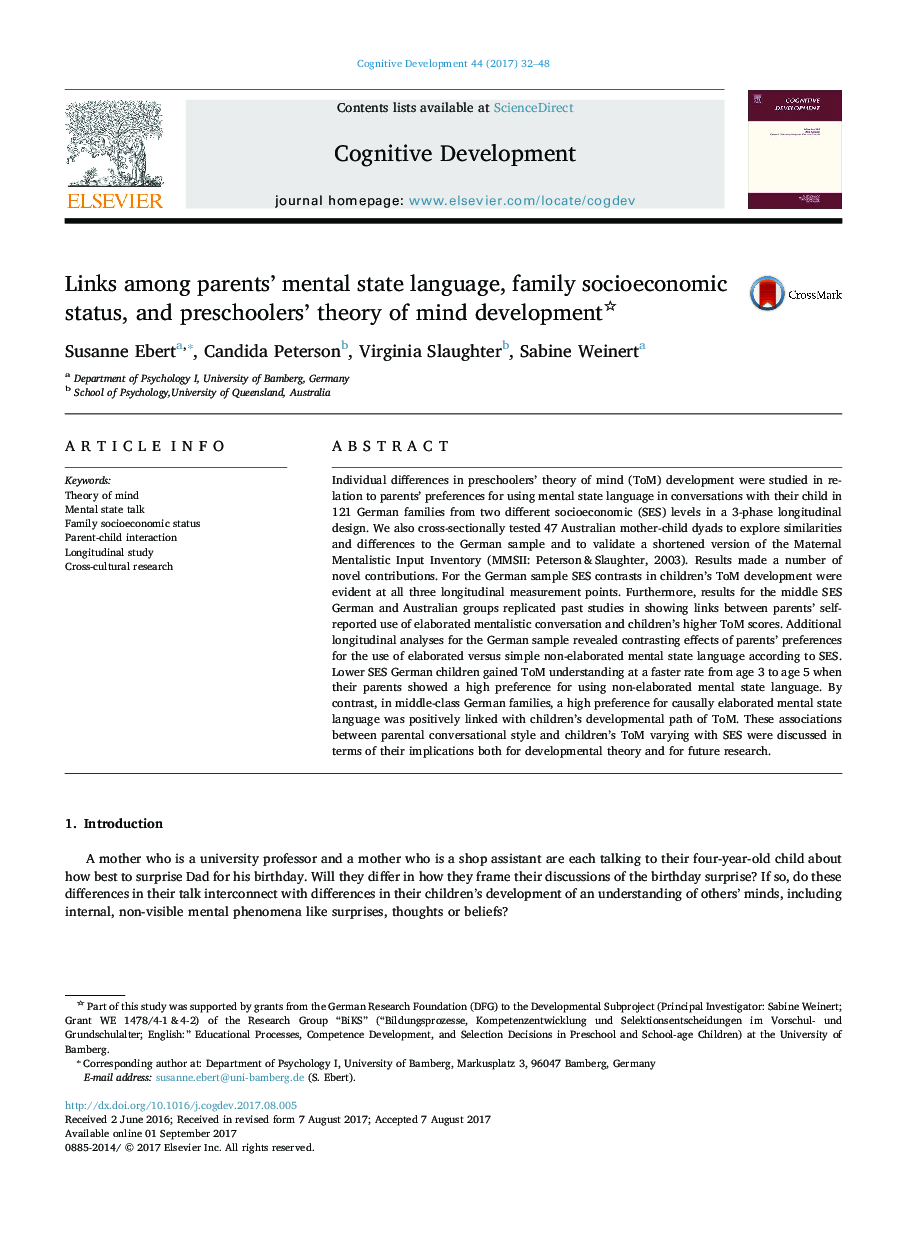| کد مقاله | کد نشریه | سال انتشار | مقاله انگلیسی | نسخه تمام متن |
|---|---|---|---|---|
| 5039624 | 1473339 | 2017 | 17 صفحه PDF | دانلود رایگان |
- Preschoolers from lower SES lagged behind those of higher SES in their theory of mind (ToM) cross-sectionally and longitudinally.
- Parents' styles of discussing mental states with their children displayed different interconnections with child ToM depending on family SES.
- Non-elaborated mental state language was an especially strong predictor of rapid ToM growth for German children from lower SES backgrounds.
- For middle-class German and Australian children, parents' elaborated mentalistic style was linked with children's higher ToM scores.
- The results lend cross-cultural and longitudinal support to the view that mentalistic conversation is relevant to children's ToM development.
Individual differences in preschoolers' theory of mind (ToM) development were studied in relation to parents' preferences for using mental state language in conversations with their child in 121 German families from two different socioeconomic (SES) levels in a 3-phase longitudinal design. We also cross-sectionally tested 47 Australian mother-child dyads to explore similarities and differences to the German sample and to validate a shortened version of the Maternal Mentalistic Input Inventory (MMSII: Peterson & Slaughter, 2003). Results made a number of novel contributions. For the German sample SES contrasts in children's ToM development were evident at all three longitudinal measurement points. Furthermore, results for the middle SES German and Australian groups replicated past studies in showing links between parents' self-reported use of elaborated mentalistic conversation and children's higher ToM scores. Additional longitudinal analyses for the German sample revealed contrasting effects of parents' preferences for the use of elaborated versus simple non-elaborated mental state language according to SES. Lower SES German children gained ToM understanding at a faster rate from age 3 to age 5 when their parents showed a high preference for using non-elaborated mental state language. By contrast, in middle-class German families, a high preference for causally elaborated mental state language was positively linked with children's developmental path of ToM. These associations between parental conversational style and children's ToM varying with SES were discussed in terms of their implications both for developmental theory and for future research.
Journal: Cognitive Development - Volume 44, October 2017, Pages 32-48
